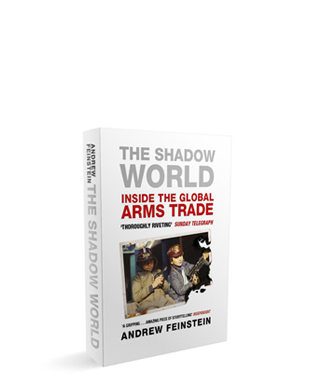If you don't believe change is possible the story of Playing for Change that started as simply a videographer finding street musicians in various places around the world and then connecting them is a moving antidote to that hardening of the mental arteries.
This initial travel experience has now evolved into a global band with live performances and into an inspiring launch of music schools in the developing world. If the story doesn't move you, the music should.
Over the past few years I’ve been averaging about 20-30
nonfiction books a year. Not even a drop in the ocean of new books published.
And those that I find particularly insightful I often mention in this blog. A
small handful have been the subject of more than one posting. I doubt any of
them have been on anyone’s bestseller list. In fact, they are frequently from
more scholarly presses with a small audience.

Just last week I was browsing the new book shelf at my
university library- they shelve perhaps 100 new titles a day and leave them up
for a week. So my chances of even seeing them there is quite iffy. And I
certainly don’t look at every book. I skim by call number (subject) and then by
title. The title of one paperback that
caught my attention was Change
Everything.

It was classified in economics.
As I pulled it off the shelf and opened it, I discovered the subtitle that
convinced me to give it a chance: Creating
an Economy for the Common Good. Part of me was resistant to try yet one
more economics book as there are now close to two dozen I have consumed in the
past few years. I had never heard of the author, Christian Felber, although it
became apparent from the back cover that he was a European Economist. One quote
claimed Felber “is one of the most brilliant economists in Europe.”
Well I get this far with lots of books. But after reading
the rest of the salutary blurbs, a few from names I knew and respected, reading
the forward and his preface, I determined that this was at least worth some
investment of my time. Felber, it turns out is an Austrian economist who writes
in German. So the book in my hands was a translation by Susan Nurmi. Boy am I
glad she agreed to do this!! The book was originally written in 2012 and
released and updated in English last year.
As is my inclination, especially in fields where I have some
reading experience, I like to glance at the bibliography to see whom the writer
reads and cites. While there were a few economists in English I was familiar
with – Herman Daly, Tim Jackson, E.F. Schumacher, Leopold Kohr, Elinor Ostrom,
Thomas Picketty, Milton Friedman, the majority were from German and French
authors I was unfamiliar with, a real bonus.
Now I realize it may be premature to start a review of a
book if you’re only 122 pages into. There are 222 pages of text here. But I don’t
want to wait. Regardless of what transpires in the last 100 pages, what Felber
has done thus far is mesmerizing. Part of me wants to rush to completion, but
the part calls me to slow down and savor all that he is weaving together. First
of all his tone and aim are in line with the focus of my blog: Possibilitator – Extending the idea
of what’s possible – a rebuttal to Margaret Thatcher’s, “There Is No Alternative”.

As he says early in his preface, “One of the main objectives of
this book is to demonstrate, in concrete terms, that there are in fact alternatives
to the current economic order.” (p. xiv)
But this is not simply a checklist of what we might do to
create an economy for the common good, although there is plenty of specific
examples already shared at this point in the book with promises of more to
come. This is a deeply reflective
analysis of why we have the system we have. Felber clearly examines the supposed tenets of our
current system and then shows how they are
responsible for the shortcomings we see all around us.
Felber then begins to construct an alternative set of tenets,
shoring them up with evidence of a better outcome employing a systemic
understanding of the interaction of the principles and practices. At the
foundation is, of course, a discussion of key values. And it is here the
wrestling match must begin with those who believe the system we have only needs
a little tweaking to repair the damages that have resulted from its
application. As Felber makes clear
“Two
crucial questions pose themselves: what does the “common good” mean and who
defines it? As a guiding concept, the Economy for the Common Good has no
preconceived meaning except that it signifies how important the well-being of
all human beings and the natural world is… the only immanent meaning of the
common good concept is that everyone’s well-being counts. Otherwise the concept
constitutes nothing more than an umbrella term in the sense of a constitutional
goal which sums up the key values of democratic societies. The precise meaning
of its individual components can and should be determined democratically. The “common
good” is neither divinely handed down nor does it derive from the grace of any
emperor.”
It should be clear that Felber doesn’t see the system he
envisages as some detailed system designed by experts, but rather a direction
driven by local democratic process upon shared values. He has a whole chapter
coming up on ‘advancing democracy’ which is central to his thesis Following
that is a chapter on real world examples, and concluding on how we might ‘put
it into practice’. He begins that last chapter with this quote from
Buckminster Fuller:
“You never change things by fighting the existing reality. To change
something, build a new model that makes the existing model obsolete.”

Felber has not only given us some refreshing ideas, he and
colleagues have begun to put many into practice. By the end of 2014 there were
efforts afloat in numerous countries, regions and municipalities involving
businesses, government, organizations and individuals to employ the ideas for an Economy for the Common Good. Anyone dissatisfied with
the current state of affairs will be pleased to see that another world is
possible and is being born. You might even want to join the efforts. There is no better place to begin than with this very important and inspiring book.
Perhaps the anthem for the new age is best represented in one of the Playing for Change Band's version of this song: "A Change is Gonna Come."






